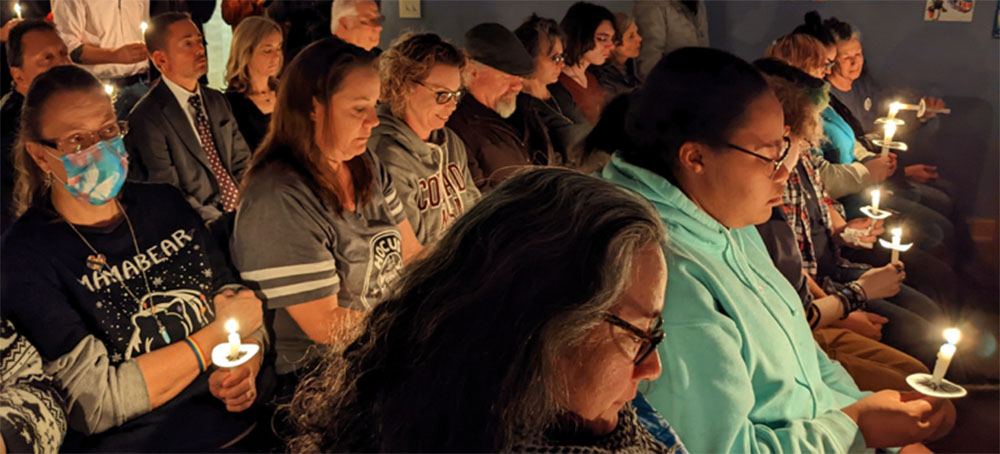
A Capitol Pride rally in Washington, D.C., on June 12, 2021. (photo: Tom Williams/CQ-Roll Call, Inc/Getty Images)
Bill now goes back to House for final vote then heads to Biden's desk.
The Senate passed landmark legislation Tuesday that would codify federal protection for marriages of same-sex and interracial couples, with Democrats securing enough votes to overcome opposition from most Republicans.
The Respect for Marriage Act was approved 61-36, with support from all Democrats and 12 GOP votes, after a filibuster was defeated and three amendments offered by Republicans who oppose the bill were rejected.
The measure now returns to the House for a final vote before it can go to President Joe Biden, who said he looks forward to enacting it.
“With today’s bipartisan Senate passage of the Respect for Marriage Act, the United States is on the brink of reaffirming a fundamental truth: love is love, and Americans should have the right to marry the person they love,” Biden said in a statement.
The Senate vote reflects the rapidly growing public support for legal same-sex marriage, which hit a new high of 71% in Gallup tracking polls in June, up from just 27% in 1996, when Gallup first began polling the issue.
"We're making a really positive difference in people's lives by creating the certainty that their ability to protect their families will be lasting," said the author of the bill, Sen. Tammy Baldwin, D-Wis., the first openly gay lawmaker elected to the Senate.
Baldwin revised the measure to win some Republican votes by adding language to make it clear that religious organizations wouldn’t be required to perform same-sex marriages and that the federal government wouldn’t be required to protect polygamous marriages.
Senate Majority Leader Chuck Schumer, D-N.Y., said before the vote Tuesday that he was wearing the same tie he wore to the wedding of his daughter and her wife. "It's personal to me," he told reporters.
The 12 Republican proponents were an eclectic group, including retiring Sens. Rob Portman of Ohio, Roy Blunt of Missouri and Richard Burr of North Carolina; centrist deal-makers like Sens. Mitt Romney of Utah, Susan Collins of Maine, Lisa Murkowski of Alaska and Thom Tillis of North Carolina; a leadership member in Sen. Joni Ernst of Iowa; and conservative Sens. Todd Young of Indiana, Shelley Moore Capito of West Virginia, Dan Sullivan of Alaska and Cynthia Lummis of Wyoming.
Lummis said backing the bill sparked blowback.
“My days since the first cloture vote on the Respect for Marriage Act as amended have involved a painful exercise in accepting admonishment and fairly brutal self-soul-searching — entirely avoidable, I might add, had I simply chosen to vote 'no,'” she said. “I, and many like me, have been vilified and despised by some who disagree with our beliefs. They do not withhold bitter invective. They use their own hateful speech to make sure that I, and others who believe as I do, that we are hated and despised by them.”
The legislation came about after the conservative Supreme Court majority overturned the constitutional right to an abortion, sparking fears that the justices may also revisit liberal court precedents that enshrine marriage rights for gay and interracial couples.
The bill would require the federal government to recognize marriages that were valid in a state when they were performed. It would also ensure full benefits for marriages "regardless of the couple’s sex, race, ethnicity, or national origin," but it would not require states to issue marriage licenses contrary to state law.
If the bill becomes law and the Supreme Court rescinds the right to same-sex marriage, Americans could go to other states and get married if it's not legal in their states.
“This will ensure that wherever you live, if you get married in a state where it’s legal, they have to recognize it wherever you are," a Democratic aide familiar with the legislation said. "And you have the same rights, benefits, responsibilities and freedoms wherever you are.”
Schumer held a lengthy procedural vote open Monday as Democrats sought to cut a deal with GOP senators who threatened to drag out the process unless they got votes on amendments. The Senate had teed up three of them: one by Mike Lee, R-Utah, at a 60-vote threshold, and two by James Lankford, R-Okla., and Marco Rubio, R-Fla., both of which needed just simple majorities to pass. After they failed, the bill passed.
One Democrat, Sen. Raphael Warnock, missed the vote as he campaigns in Georgia for next week’s Senate runoff against Republican Herschel Walker.
Most Republicans opposed the legislation, although earlier procedural votes all but made it clear that the bill had enough GOP support to pass. Proponents wanted to pass the measure in the lame-duck session before Republicans take control of the House on Jan. 3.
Even in redneck country (aka Florida), some of the natives want to say "GAY."



















